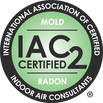Mike's Home Inspector BlogMichael Burfitt |
|
In my experience, Nova Scotia homes are divided almost equally between electric heat, boilers, and furnaces. There are many advantages and disadvantages for each type and a licensed HVAC contractor can provide advice on the best solution for your situation. For those who use home heating oil, you will require the use of a fuel storage tank. There are a few regulations regarding placement on property, acceptable types of piping and materials for the construction of oil tanks. The tanks are usually composed of two materials: steel or fibreglass and can be stored inside or outside. Edit in April 2024: I have enough inspections under my belt to confidently state that the ratio is about 70% steel and 30% fibreglass, at least around Central Nova Scotia. Lifespan of Oil Tanks Steel tanks are generally safe to use for about 20 years and fibreglass for 30+, however, you might need to replace a steel oil tank after 15 years and a fibreglass oil tank after 20 years. Why the difference? Insurance! While rare, an oil spill can cost 5 and even 6 figures to remediate, so insurance companies generally err on the side of caution and require replacement at these intervals. If you are buying a home with an Oil Tank, remember to check with your insurance company to find out what their policy is: we will provide you with the age of your tank provided the data plate is accessible and readable. Steel Oil Tanks
At one point, this was the only choice in Nova Scotia. While they are no longer permitted in some areas, such as Prince Edward Island, they are still in regular use in our province. These tanks tend to corrode from the inside out and can leak without warning. They are also extremely heavy and moving them inside can be difficult and expensive. The big advantage is cost: they are significantly cheaper than fiberglass. Fiberglass Oil Tanks These tanks are lighter, last a long time (unfortunately some insurers still require replacement long before they are unsafe to use) but come with a higher price tag. If insurers extend the timeframe before replacement is required, or the price of ferrous metal increases sharply, this will likely make this type of oil tank the undisputed choice. A Note About Underground Oil Tanks While beyond the scope of a home inspection, I am always on guard for the potentially serious issue of an abandoned, buried oil tank. Compared to other provinces I hear few stories about homeowners discovering them on their property as according to my research it was not common practice in our region due to our geology. As a home inspector, we are always looking for anomalies and seeing a vent and/or fill pipe in a strange place (such as the middle of a backyard) is one sign that would alert us that there may be a buried oil tank that needs to be investigated and remediated. Unfortunately, the only way to know for sure is to have a qualified contractor perform a detailed search. It’s no secret that 2021 was a tough year in the Home Inspection industry, especially in the Halifax area. With the sharp increase in competition for home buyers, many have chosen to waive the inspection contingency when purchasing a home. Needless to say, skipping the home inspection is a B-A-D idea and while not the ideal solution, I do offer walkthrough consultations and strongly encourage post-sale inspections. If you are a first-time homebuyer, it is especially important to know what to expect in the coming years and plan accordingly as homes require a maintenance plan to avoid costly and disruptive issues.
When I was in the planning stages of starting my company and before the COVID-19 pandemic, I wanted to know the reasons why the services of a professional home inspector were not being considered. I found that many people have had bad experiences in the past with home inspectors that were lacking in either technical or communication skills. There is also much misunderstanding amongst new homeowners as to the value of having a home inspection and what exactly a home inspection entails. Here are a few of the more common criticisms I hear and my thoughts on them. Home Inspectors are More Interested in Staying on the Good Side of Agents Ask any inspector and they will deny this conflict of interest, but my experience has shown that this, unfortunately can happen. I have heard other home inspectors openly worry about being labelled a “deal killer” or “alarmist” or otherwise getting on the bad side of an agent or brokerage firm. While I personally am always happy to get positive referrals from anyone, including local agents, the bottom line is that I built our company's reputation as your source for trusted, unbiased and independent home inspections and home related information above all else. Simply put, any real estate agent or organization who expects me to compromise our integrity to push through a deal by writing a "soft" report is looking at the wrong company. Just Hire an Electrician, Plumber, Roofer, and Structural Engineer While some inspectors do occasionally come from these various backgrounds, it is safe to say as a general rule, home inspectors are not electricians, plumbers, roofers or engineers. It is true that collectively hiring from 1 of each of these 4 specialties will indeed yield a more in-depth inspection into arguably the four most important parts of a home. Realistically, it is extremely unlikely to coordinate these four separate trades all at the same time, often with short notice, often on the weekend and at a price that is affordable to the average homeowner. A home inspection is the best value for your money as a good overall introduction or assessment of your home. Home inspectors are both generalists and big picture thinkers and see a home as a system of interdependent components that no specialist can match. I Can’t Trust Nova Scotia Home Inspectors: There Are No Regulations! Stating that Nova Scotia has zero home inspection regulations is 100% true and has been a topic I have written about previously. There has been no shortage of people who have tried their hand unsuccessfully at home inspections both in our province and across North America. Some of these home inspectors have no recognizable qualifications or relevant experience and are masquerading as experts, hurting the overall reputation of our industry. Home Inspectors have one of the highest failure rates of any profession because it quickly becomes apparent, while a fun and rewarding career, that home inspectors do a job that is mentally and physically challenging, requires wearing a wide variety of metaphorical hats and is NOT, in any way, a path to easy money! So how do you know you can trust your inspector to do a great job and provide maximum value? While there is no shortage of trustworthy, thorough, and knowledgeable home inspection companies in our area, I can only speak for my own organization. Inside Edge Home Inspections Ltd. was not an idea I thought up overnight but was the result of over 3 years of careful and meticulous planning. I knew nobody should be expected to pay for someone who still has significant gaps in their knowledge base so that is why I made sure I had an extensive knowledge and experience before launching: as the saying goes you only get one chance to make a first impression and I wanted to make sure our company’s reputation was excellent right from the start. Our website details my extensive background and why I am suited to be considered a highly skilled home inspector, with no need to worry about whether calling Inside Edge is the right decision for you.
This picture shows a sample of the common types of wires seen in residential homes. Let’s summarize the data in an easier to understand format and take a look line by line looking at the wires pictured above from top to bottom: 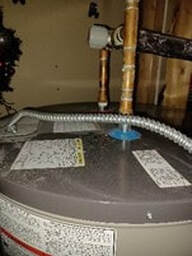 BX Wire on a Water Heater BX Wire on a Water Heater AWG This stands for American Wire Gauge and is a standard designation in North America. It is important to note that the smaller the number, the LARGER the wire and its carrying capacity. Type There are two types visible in the photo: NM and BX. NM stands for Non-Metallic and is frequently referred to by a brand name called Romex. BX (or B experimental. Long story…..) is otherwise known as Armour Coated wire and while more expensive is great at providing protection against mechanical damage. Conductors You might see wires referred to as “14/2” or “12/3”. This is a measure of the gauge and the total number of wires (ignoring the ground wire). At least one conductor is always a hot wire, but the second wire is not necessarily a neutral, even though a circuit needs a neutral to complete the circuit. Yes, on the surface that makes no sense, but we’ll get to that! Hey, That is Way Too Abstract! You are probably thinking that you are just an everyday homeowner and not looking to become a master electrician. Fair enough, so let’s spell out in plain English what these various wires are used for. 1)This is a low-capacity wire that is usually for electronics or extension cords. It can be used to power small loads, such as lighting. 2)This is a #14 (very common) wire that has 3 conductors. Two common uses are for 3-way lighting switches and split receptacles, where for example a light switch can turn off just one half of a wall outlet. 3)This is an armour coated BX wire that, in our home is used to power our electric water heater. Since it runs on 240V using both hot lines entering a home, it needs two hot wires (red and black) but since it does not need 120V power the two hots can alternate acting as a neutral. This is why I keep repeating to LEAVE ELECTRICAL WORK TO ELECTRICIANS! 4)Used for 20amp circuits, seen in modern kitchens, which thanks to changes in electrical codes are far more common than in the past. 5)Similar to #3 except it has a plastic rather than a metal cover. Our home uses this type of wire for baseboard heaters. 6)This 10/3 is usually used for dryers and air conditioners. Since a dryer has 120V components, it requires a separate neutral. My purpose was not to confuse or overwhelm but rather to show you why it is so important to always hire an electrician to modify an electrical system, no matter how minor. Too small a wire can easily lead to a fire (the circuit breaker or fuse provides no protection against this) and while too large is generally okay, it is a waste of money and can be difficult to connect. A Final Note I occasionally see extension cords being used as a substitute for permanent wiring in homes that do not have enough receptacles. I cannot emphasize enough that this is a dangerous practice that can lead to a fire, especially if it is buried under a carpet or rug. These type of cords are not designed for more than a month's use and the buildup of heat can easily start a fire. The same principle applies to Christmas lights and why I use them exclusively in the month of December. |
Archives
July 2024
Categories
All
|
|
Inside Edge Home Inspections Ltd.
Halifax, NS 902-209-9921 [email protected] Proudly Serving the HRM & Central Nova Scotia |
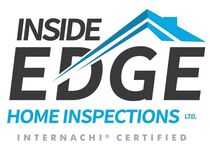

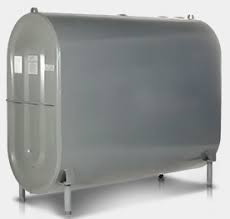

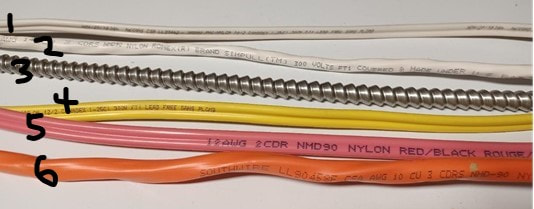
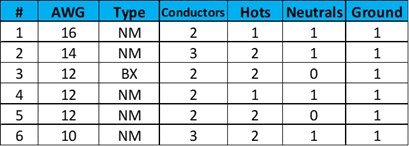
 RSS Feed
RSS Feed

